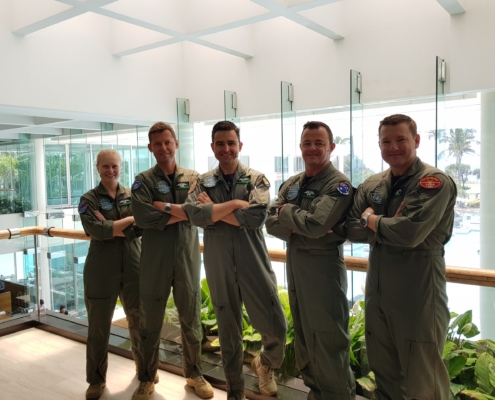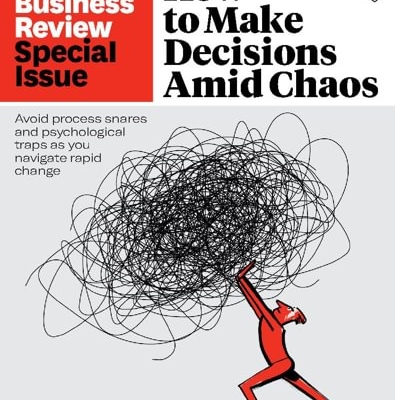 https://www.afterburner.com/wp-content/uploads/2024/10/2462040_PhotoshopImagesBlackFlightSuits_03_091524.png
2369
3553
Ansley Anchors
/wp-content/uploads/2024/07/Afterburner-Logo-Resize-Fullcolor-300x93.png
Ansley Anchors2024-10-31 08:56:592024-11-20 14:55:53Afterburner Black
https://www.afterburner.com/wp-content/uploads/2024/10/2462040_PhotoshopImagesBlackFlightSuits_03_091524.png
2369
3553
Ansley Anchors
/wp-content/uploads/2024/07/Afterburner-Logo-Resize-Fullcolor-300x93.png
Ansley Anchors2024-10-31 08:56:592024-11-20 14:55:53Afterburner Black
In business, certain things are pretty much universal. Here’s just one example: Whatever industry you’re in, there’s a strong chance your company plans to have a sales kickoff, user conference, team-building session, or other type of corporate event in the next year.
A lot goes into events like these. They can take weeks or months to plan, with a lot of budgeting necessary for travel, event space, and more.
If the event is a success, your team will be empowered to elevate their performance and your event planner will be riding high. If it’s a flop, then that’s a lot of time and budget you can’t get back.
To put it another way: When it comes to corporate events, the stakes are high.
What a successful corporate event looks like
In the interest of helping you stick the landing at this critical moment for your team, here are four central components of any successful corporate event.
1. Bringing people together
It’s been several years now since the pandemic arrived. But even after all this time, teams are still reeling from its impact. There has been turnover and downsizing, with debilitating effects on teams’ morale. Meanwhile, many of us haven’t seen our coworkers in person since early 2020 or even longer. Many others have never met our coworkers at all outside of a computer screen.
Against this backdrop, what many teams need more than anything else is simply the chance to have a shared experience. Rather than defaulting toward virtual events, this is a time to bring people together in person – with appropriate safety measures and accommodations in place, of course.
As much as possible, try to make it a company-wide, not just team-wide, bonding experience: Once everyone is onsite, the smartest leaders will organize their event in a way that gives people the chance to interface not just with people from their own team, but from all teams in attendance.
2. Keeping the energy and excitement high
This could be the first time everyone on your team has gotten together in years – if ever. Whatever you do, don’t let it be boring. People don’t want to travel long distances just to watch a series of monotonous PowerPoint presentations on goals and strategies for the year.
Make sure your speakers are charismatic. Speak to the exciting possibilities your team has ahead of them. Don’t be shy: shout through bullhorns, involve music, and get the crowd involved.
3. Make it unique
It’s not enough for your event to be high-energy. It needs to be different. Chances are most people on your team have been to plenty of corporate events throughout their careers. If you want the key takeaways from your event to stick with everyone on your team so they walk away pumped up and ready to deliver results, you’ve got to make it truly unforgettable. What are you doing to make sure this event isn’t like all the others they’ve attended in the past?
Learn how Afterburner can deliver a unique, high-energy experience for your team.
4. Focus on doing, not just speaking
It’s easy to spend your annual kickoff talking through your plans for the year in keynotes and breakout sessions. But we all know that the best-laid plans often go awry when put in practice.
Instead, try keeping it hands-on. Break your team into groups and have them roll up their sleeves and practice their collaboration and execution skills. Use simulated challenges involving unexpected contingencies.
This will make your team more connected – both in terms of their execution rhythm as well as emotionally – and better equipped to deliver results. It will also put them in a better position to execute on the plans you’ve made, and to handle any surprises that may (read: almost certainly will) arise throughout the quarter and the year.
Conclusion
Teams everywhere are looking at a golden opportunity to do something they haven’t done in years: have an exciting, high-energy, team-wide experience. The insights shared above will help you make the most of this critical moment.
Want to take the first step toward a unifying, unique, and action-driven corporate event for your team? Get in touch.
Share This Post
More Like This
 https://www.afterburner.com/wp-content/uploads/2024/10/2462040_PhotoshopImagesBlackFlightSuits_03_091524.png
2369
3553
Ansley Anchors
/wp-content/uploads/2024/07/Afterburner-Logo-Resize-Fullcolor-300x93.png
Ansley Anchors2024-10-31 08:56:592024-11-20 14:55:53Afterburner Black
https://www.afterburner.com/wp-content/uploads/2024/10/2462040_PhotoshopImagesBlackFlightSuits_03_091524.png
2369
3553
Ansley Anchors
/wp-content/uploads/2024/07/Afterburner-Logo-Resize-Fullcolor-300x93.png
Ansley Anchors2024-10-31 08:56:592024-11-20 14:55:53Afterburner Black https://www.afterburner.com/wp-content/uploads/2024/09/embracing-failure-afterburner-1-scaled-1.jpg
1920
2560
Nate Riggins
/wp-content/uploads/2024/07/Afterburner-Logo-Resize-Fullcolor-300x93.png
Nate Riggins2024-01-09 22:52:542024-11-20 14:55:53Reimagining Your Sales Kickoff: Infusing Innovation and Connection
https://www.afterburner.com/wp-content/uploads/2024/09/embracing-failure-afterburner-1-scaled-1.jpg
1920
2560
Nate Riggins
/wp-content/uploads/2024/07/Afterburner-Logo-Resize-Fullcolor-300x93.png
Nate Riggins2024-01-09 22:52:542024-11-20 14:55:53Reimagining Your Sales Kickoff: Infusing Innovation and Connection https://www.afterburner.com/wp-content/uploads/2024/09/fortune-cookies-1400x933-1.jpeg
933
1400
Nate Riggins
/wp-content/uploads/2024/07/Afterburner-Logo-Resize-Fullcolor-300x93.png
Nate Riggins2024-01-02 18:24:072024-11-20 14:55:55Want to make better business predictions? Flawless Execution is the answer.
https://www.afterburner.com/wp-content/uploads/2024/09/fortune-cookies-1400x933-1.jpeg
933
1400
Nate Riggins
/wp-content/uploads/2024/07/Afterburner-Logo-Resize-Fullcolor-300x93.png
Nate Riggins2024-01-02 18:24:072024-11-20 14:55:55Want to make better business predictions? Flawless Execution is the answer. https://www.afterburner.com/wp-content/uploads/2024/09/three-fighter-jets-maneuvering-in-sequence-min-1.jpeg
1133
1920
Nate Riggins
/wp-content/uploads/2024/07/Afterburner-Logo-Resize-Fullcolor-300x93.png
Nate Riggins2024-01-02 16:08:452024-11-20 14:55:55How to Build Accountability in the Workplace – and Why It Matters
https://www.afterburner.com/wp-content/uploads/2024/09/three-fighter-jets-maneuvering-in-sequence-min-1.jpeg
1133
1920
Nate Riggins
/wp-content/uploads/2024/07/Afterburner-Logo-Resize-Fullcolor-300x93.png
Nate Riggins2024-01-02 16:08:452024-11-20 14:55:55How to Build Accountability in the Workplace – and Why It Matters https://www.afterburner.com/wp-content/uploads/2024/09/Christian-_Boo_-Boucousis-on-stage-1.jpeg
1066
1600
Nate Riggins
/wp-content/uploads/2024/07/Afterburner-Logo-Resize-Fullcolor-300x93.png
Nate Riggins2024-01-01 17:03:122024-11-20 14:55:55How to Pick the Right Guest Speaker for Your Event
https://www.afterburner.com/wp-content/uploads/2024/09/Christian-_Boo_-Boucousis-on-stage-1.jpeg
1066
1600
Nate Riggins
/wp-content/uploads/2024/07/Afterburner-Logo-Resize-Fullcolor-300x93.png
Nate Riggins2024-01-01 17:03:122024-11-20 14:55:55How to Pick the Right Guest Speaker for Your Event https://www.afterburner.com/wp-content/uploads/2024/09/us-air-force-1.jpeg
933
1400
Nate Riggins
/wp-content/uploads/2024/07/Afterburner-Logo-Resize-Fullcolor-300x93.png
Nate Riggins2024-01-01 17:02:542024-11-20 14:55:55How the Fighter Pilot Mindset Can Elevate Your Corporate Event
https://www.afterburner.com/wp-content/uploads/2024/09/us-air-force-1.jpeg
933
1400
Nate Riggins
/wp-content/uploads/2024/07/Afterburner-Logo-Resize-Fullcolor-300x93.png
Nate Riggins2024-01-01 17:02:542024-11-20 14:55:55How the Fighter Pilot Mindset Can Elevate Your Corporate Event https://www.afterburner.com/wp-content/uploads/2024/09/purposeful-action-afterburner-1.jpg
1080
1920
Nate Riggins
/wp-content/uploads/2024/07/Afterburner-Logo-Resize-Fullcolor-300x93.png
Nate Riggins2023-12-21 15:23:142024-11-20 14:55:56Unlocking the Power of Purposeful Action in Work and Life
https://www.afterburner.com/wp-content/uploads/2024/09/purposeful-action-afterburner-1.jpg
1080
1920
Nate Riggins
/wp-content/uploads/2024/07/Afterburner-Logo-Resize-Fullcolor-300x93.png
Nate Riggins2023-12-21 15:23:142024-11-20 14:55:56Unlocking the Power of Purposeful Action in Work and Life https://www.afterburner.com/wp-content/uploads/2024/09/how-to-make-better-decisions-afterburner-1.jpg
1080
1920
Nate Riggins
/wp-content/uploads/2024/07/Afterburner-Logo-Resize-Fullcolor-300x93.png
Nate Riggins2023-12-12 17:38:372024-11-20 14:55:56Empowering Decisions Through Debrief Culture
https://www.afterburner.com/wp-content/uploads/2024/09/how-to-make-better-decisions-afterburner-1.jpg
1080
1920
Nate Riggins
/wp-content/uploads/2024/07/Afterburner-Logo-Resize-Fullcolor-300x93.png
Nate Riggins2023-12-12 17:38:372024-11-20 14:55:56Empowering Decisions Through Debrief Culture
Mastering Decision-Making in a World of Chaos: Lessons from Harvard Business Review Magazine
Business Culture, Leadership, MotivationAbout Us
Building Strong Teams Through the Guidance of Fighter Pilot Keynote Speakers.

